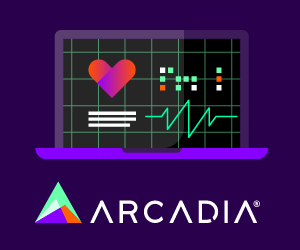
Chronic hormonal conditions are fairly common in women. For example, polycystic ovary syndrome (PCOS) affects up to 12% of U.S. women of reproductive age, and endometriosis affects about 11%. Despite the widespread nature of these conditions, many women go undiagnosed for up to a decade. And among the women who do get diagnosed, they often report years of suffering and trouble managing their symptoms, often due to a lack of medical research and awareness for their condition.
These disheartening statistics, as well as the difficulty she had arriving at her own PCOS diagnosis, led Rachel Blank to found Allara in 2021. The New York City-based startup offers an expansive network of care providers, seeking to bridge the care divide for the millions of women dealing with chronic hormonal conditions.
On Wednesday, Allara closed a $10 million Series A financing round led by GV, bringing its funding total to $16.5 million. Other participants in the round included Great Oaks Venture Capital, Humbition, Vanterra and Gaingels, as well as angel investors Maggie Sellers and One Medical founder Tom Lee.
Blank — Allara’s CEO whose prior healthcare experience involves being director of strategy at Ro, the founder of women’s health platform Rory and an investor at General Catalyst — said that her own personal journey to her PCOS diagnosis was a key reason that Allara came to be.
“After struggling for years to address unexplained health issues and conducting extensive, independent research, I wanted to offer a solution for the millions of women just like me who were dealing with chronic hormonal conditions,” she declared. “Patients should not be burdened to navigate a siloed care system on top of the debilitating physical issues they are already experiencing. Allara recognized these gaps as a call to help women with chronic conditions feel seen, heard and treated with specialized care.”
Allara offers monthly memberships, which include ongoing medical and nutrition services, quarterly check-ins with OB-GYNs and dieticians, and on-demand access to Allara’s educational resources.
The startup has partnered with some major insurers, including Aetna, Anthem, Cigna, Empire and UnitedHealthcare. If Allara is in-network with a patient’s health plan, their membership fee is $20 per month or $180 for the year, along with copays. If a patient’s insurance is not in-network, the membership starts at $99 per month.
When joining Allara’s platform, patients complete an intake form that includes their insurance, health history and overarching goals for using the service. Then, they meet with an OB/GYN and dieticians via video.
“Following their initial meetings, extensive hormonal and metabolic testing is conducted to inform the user’s personalized care plan. This could include dietary supplements, individualized nutrition recommendations, exercise, stress and lifestyle management suggestions, and, if appropriate, medication,” Blank explained.
Allara’s care teams consist of OB/GYNs, endocrinologists, dieticians and nurse practitioners who are specialized in women’s health. The startup’s advisory board is led by Dr. Heather Huddleston, who is director of the PCOS clinic at the University of California San Francisco.
The company’s full-scale care membership is currently available in 21 states, and a nutrition-only option is available in an additional seven states. With its new Series A capital, Allara plans to expand nationwide by the end of 2024, Blank noted.
“Allara scales expert specialty care to patients everywhere. We started as a platform for patients with PCOS, and have since expanded to treat all chronic women’s health conditions, including endometriosis, uterine fibroids, thyroid disease and more. We can also help women with unanswered questions get a diagnosis if they don’t already have one,” she said.
More and more women’s health startups have been emerging in recent years, such as Tia, Maven Clinic, Evvy, Visana Health, HerMD, Herself Health and Upliv. Blank argued that Allara is the “only patient-focused platform that combines the expertise of OB/GYNs with registered dietitians to treat the whole body care needs of women with complex chronic conditions like PCOS and endometriosis.”
She also said that she views startups that offer women’s primary care, such as Tia and Herself Health, as partners rather than competitors.
“We encourage our community to continue seeing their primary care physicians as they work with our team. Allara is designed as a source of supplemental care for hormonal, metabolic and gynecological conditions, and it pairs well with in-person and virtual PCP offerings,” Blank noted.
Photo: Allara



















